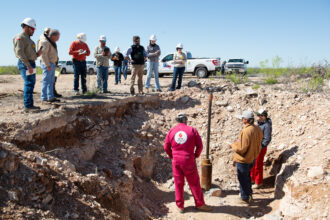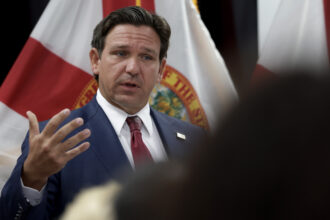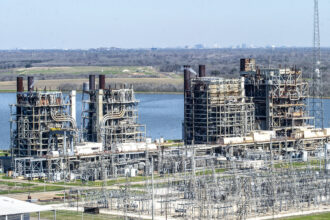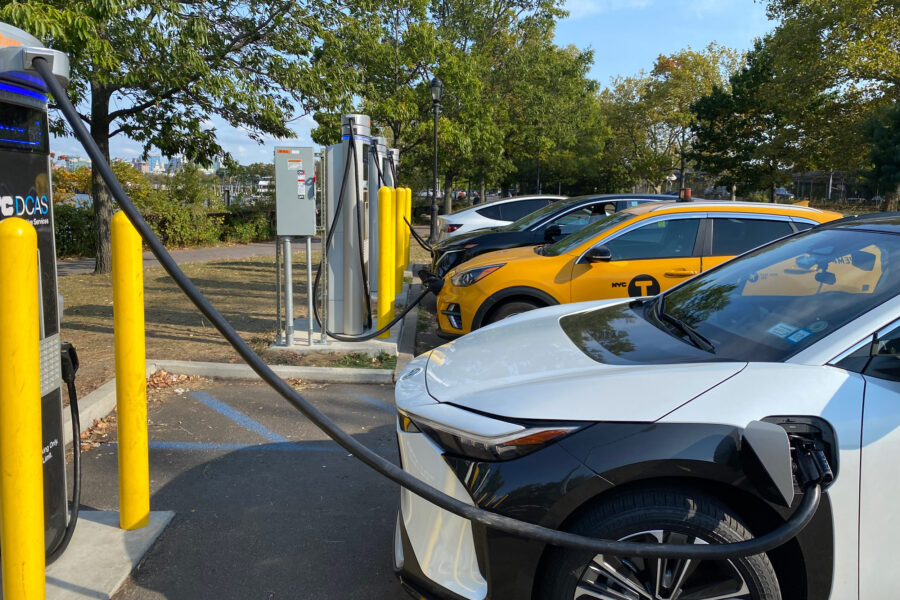Despite its near-absence from debates and mainstream political discussion this election season, dangerous climate change is still happening.
And as voters line up to cast their votes for either Hillary Clinton or Donald Trump, they might be feeling the symptoms of it.
The warmth sweeping parts of the country right now is markedly above average—roughly 8 degrees above average, according to The Weather Channel’s storm specialist Carl Parker, and more like 15 degrees above average in some pockets.
Meridian, Miss., hit 91 degrees on Oct. 30 and 31. Trick-or-treaters in Kansas, Alabama and Georgia saw temperatures in the ’90s, too. In the Twin Cities, which Parker said has experienced a freeze before Nov. 7 every year since 1900, there isn’t a freeze in sight.
This ironic twist comes after three presidential debates without a single question that dealt directly with climate change. This is despite 2016 heading quickly toward being the hottest year on record. And despite Donald Trump’s promise to “cancel” the Paris climate agreement.
To some, the climate may not matter on Election Day. But the weather does.
It’s an old adage that Republicans should pray for rain because it lowers voter turnout and the higher the voter turnout, the better the results for Democrats. A 2007 study upheld that theory. The study, published in The Journal of Politics, found that for each inch of rain that falls on Election Day, voter turnout is impacted by roughly 1 percent.
That may seem like a small amount, but elections are often decided by small margins. The study said this could have made the difference in Florida in 2000. According to the authors, a dry day could have swung the election in Al Gore’s favor (though a rainier day could have landed the day securely in George W. Bush’s court).
The voting data used in that study was from 1948-2000, explained study author Brad Gomez, associate professor of Political Science at Florida State University. Since 2000, 34 states and Washington, D.C. have adopted early voting. Overall, Gomez said, you would expect early voting to mitigate the effects of weather, since people have longer to vote and in many states have the option of mailing in their ballot.
But there’s a catch.
Early voters—who this year may very well have gotten a tan on the way to cast their vote—tend to be core voters, “those who are typically more partisan and have stronger political views,” said Gomez. “The voters who are voting on Election Day are typically the more peripheral voters.” These voters are the sweet spot for candidates—the highly-coveted undecided voters, who can help swing an election.
Gomez theorizes that this could exacerbate the impact of bad weather on Election Day.
It’s unlikely you’ll find many people complaining this year.
“You see a lot of talk about the warmth and to some extent I guess people don’t mind it,” said Parker. “But the elephant in the room is that the planet is changing really dramatically, and it’s not some distant thing—it’s happening right now.”
About This Story
Perhaps you noticed: This story, like all the news we publish, is free to read. That’s because Inside Climate News is a 501c3 nonprofit organization. We do not charge a subscription fee, lock our news behind a paywall, or clutter our website with ads. We make our news on climate and the environment freely available to you and anyone who wants it.
That’s not all. We also share our news for free with scores of other media organizations around the country. Many of them can’t afford to do environmental journalism of their own. We’ve built bureaus from coast to coast to report local stories, collaborate with local newsrooms and co-publish articles so that this vital work is shared as widely as possible.
Two of us launched ICN in 2007. Six years later we earned a Pulitzer Prize for National Reporting, and now we run the oldest and largest dedicated climate newsroom in the nation. We tell the story in all its complexity. We hold polluters accountable. We expose environmental injustice. We debunk misinformation. We scrutinize solutions and inspire action.
Donations from readers like you fund every aspect of what we do. If you don’t already, will you support our ongoing work, our reporting on the biggest crisis facing our planet, and help us reach even more readers in more places?
Please take a moment to make a tax-deductible donation. Every one of them makes a difference.
Thank you,














